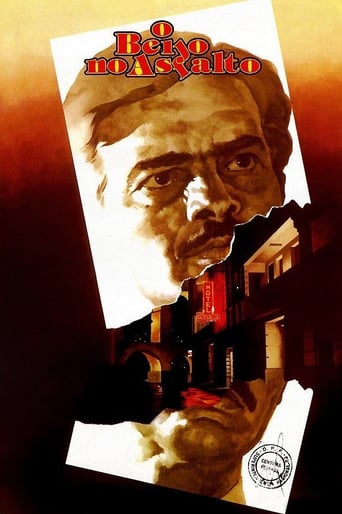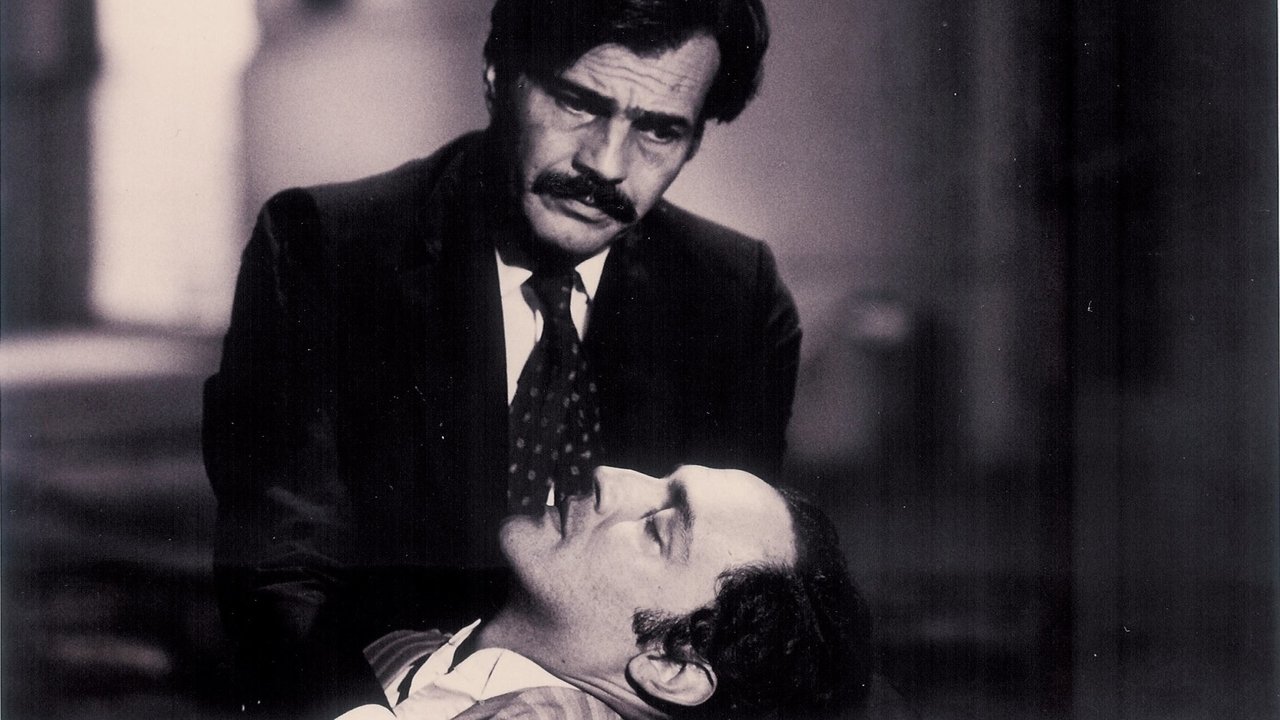Rodrigo Amaro
"Kissing someone who's dying is beautiful" says the man who arranged a lot of complication to his life after doing such act to a dying man in front of everybody, or better saying, in front of people who couldn't possibly understand why he did what he did. Until we get to this explanation, the uncomprehended yet pure act will reveal how easy it is to destroy someone's reputation, how gossip and lies becomes "truth" to be sold in cheap newspapers with no news to publish, inventing everything to get attention. The underlying premise of Nelson Rodrigues play turned into this movie is an interesting one, although implausible, a little unreal and to a certain extent could be labeled as laughable, specially now. The treatment given by director Bruno Barreto doesn't confirm any kind of laughs, instead, invites us to reflection on how society is prejudicial, mean, careless and dubious, choosing to destroy and hate rather than just feel any kind of sympathy towards a compassionate scene.This is the story of Arandir (Ney Latorraca), a simple man, married, living a quiet life with his young wife (Christiane Torloni) and her sister Dália (Lidia Brondi), who testifies one tragic accident where a man was hit by a bus. The dying man asks for a kiss, Arandir complies and that transforms into a inconsequent story invented by a yellow press investigative reporter (Daniel Filho, impressively good while playing a hateful character) who sees in that a way to demoralize the helpful guy by saying he was homosexual, creating a scandal in the society by affirming that the accident was a murder case in which Arandir killed his lover due to jealousy. Spirals down when police is involved and everyone around Arandir simply can't understand his reasons for the kissing - neither he does explain it as well, making it more difficult for people to understand him. Turned into a persecuted figure, Arandir now needs to prove his love for his wife at the same Dália feels attracted to him. His father-in-law (Tarcisio Meira) is an intriguing character in this whole thing. He was there, he saw everything but he doesn't try to clarify the situation for the cops. Instead, he seems more preoccupied in figuring out if Arandir is really gay. He has some issues with the guy, which is better to leave out of this review.Rodrigues is a reverenced creator of stories involving scoundrels, sneaky characters living at the society's margin, in the underground, living life as it is, a pitiless and cruel reality where the most degenerate is the one most likely to survive pushing everybody down on his way up. They live and breathe in this rotten world, believing they love, but love is just another cheap world thrown away like many others. Everything is real up to a certain point. I had to suspend my belief for a long time while watching "O Beijo no Asfalto" ("The Kiss on the Asphalt"), just hearing the premise was absurd enough for me to care. I know it's placed in another time, homosexuality wasn't so accepted like it is today (even now, it's a big problem in certain places) but the movie falters with some things. The man is detained as a testimony of the accident, and even just doing that, he's tortured because the chief of police thinks he's gay, no crime is reported or thought to have happened, this is later on. Therefore, I couldn't buy they were punching him just to know if he was gay or not, since I don't know of any laws back then concerning such issues as a crime - like it happens in many countries. One of the oldest gay bars here in São Paulo exists since the military regime and there's many stories on how the police never stopped there to make arrests, it's some sort of respectful act. But of course, still underground. With those, I hope you get my point on why I couldn't fully believe in such story. Other point relates to the reporter being too close from the chief of police, interfering in the "investigation", torturing and even questioning everyone at close doors. Very strange, just as much the exploitative nature of the nude scenes - although vital to the plot.Minor complaints but valuable ones. This is a very good movie about the degradation of human relations, the vile hidden in many of us, and also the bold and noble actions some of us have, regardless of what the world thinks about it as being wrong. That's a form of love. One that face barriers, prejudice and goes beyond any kind of understanding. And still some say we can't find beauty in the misery. 8/10
Claudio Carvalho
When a pedestrian is hit by a bus, the simple clerk Arandir (Ney Latorraca) runs and kisses the moribund in a gesture of sympathy and unconditional pure love. The opportunist scum photographer Amado Pinheiro (Daniel Filho) witnesses the scene and sees the opportunity to sell newspaper and together with the despicable and abusive chief of police Cunha (Oswaldo Loureiro), they accuse Arandir of homosexuality. Further, they say that the victim would be his lover and had been killed by Arandir because he was jealous. Meanwhile, his father-in-law Aprígio (Tarcísio Meira) that does not like him goes to the suburban village to tell his daughter and Arandir's beloved wife Selminha (Christiane Torloni) and her sister Dália (Lidia Brondi) that Arandir is at the police station. On the next morning, when the newspapers are distributed, Arandir is in the headline and later is humiliated in his work and in the village where his family lives. While Amado and Cunha manipulate the event and witnesses, common people believe that Arandir is gay and a killer, with tragic consequences.I have just finished watching this version of " O Beijo no Asfalto" and I found it again a magnificent transposition of a tragic and cruel play of Nelson Rodrigues, one of the best Brazilian dramaturge, to the cinema. The story shows how sordid, hypocrite and easily manipulated the society is, transforming a magnanimous act of sympathy and pure love in the subject of prejudice and malevolence. Brazil for many years had lived under a dictatorship, and one of the consequences is that the police until the 90's was very abusive and tabloids could destroy lives without further consequences. The writer Nelson Rodrigues, who had a very amoral view of the Church, the family and the mankind, used these elements together to write this famous play. In his view, all the families are or become rotten; the middle class is very decadent and false; all the women are bitch and like to be spanked; mankind and church are corrupt and hypocrite. Therefore, " O Beijo no Asfalto" is a perfect sample of the world of Nelson Rodrigues. The direction and cast are fantastic, and Daniel Filho has certainly one of his best performances ever. I hope that readers overseas have the chance to watch this great movie. My vote is nine.Title (Brazil): "O Beijo no Asfalto" ("The Kiss on the Asphalt")


 AD
AD


